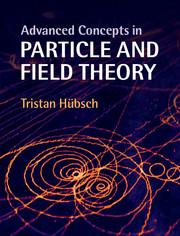B - A lexicon
Summary
When describing previously uncharted territories, discoverers and inventors are forced to adopt and adapt previously known terms, concepts and techniques for the new phenomena, or invent wholly new ones. This appendix collects a listing of perhaps less familiar but oft-used terms in our field, then turns to the vector/tensor and even functional extension to the hopefully well-familiar rules of multivariate calculus, and closes with a brief on Gödel's incompleteness theorem.
B.1 The jargon
The jargon of theoretical and mathematical physics is very much in development and in some cases not yet standardized. With the aim of using compact but precise terms to name very specific ideas, many scientists begin using an otherwise rarely used word and, at times, their choice “catches on” and becomes standardized. At other times, different terms are used by competing (or non-communicating) research groups for the same or closely related concepts, whereupon one of the two “competing” terms may turn into a standard but only after a long period during which both terms are used. As the fundamental physics of elementary particles is still very much in development, consistency and expediency required me to make certain choices in terminology, which I have, to the best of my knowledge, indicated together with possible alternatives.
The subsequent lexicon offers brief explanations for some of the perhaps less familiar technical terms and expressions, most of which are fairly standard, but in a field other than particle physics.
Abelian (commutative, symmetric) A binary operation ⋆ is abelian if a ⋆ b = b ⋆ a. By extension, structures defined using an abelian binary operation are also called abelian. Operations that are not abelian are called non-abelian (= non-commutative, = asymmetric), as are structures defined using them.
- Type
- Chapter
- Information
- Advanced Concepts in Particle and Field Theory , pp. 493 - 522Publisher: Cambridge University PressPrint publication year: 2015

